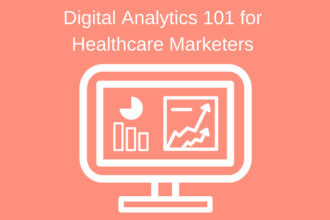The American College of Physicians (ACP) Ethics, Professionalism, and Human Rights Committee; the ACP Council of Associates; and the Federation of State Medical Boards (FSMB) Special Committee on Ethics and Professionalism spent 18 months developing a policy statement on online medical professionalism, and it was published in April 2013 in the ACP’s Annals of Internal Medicine. The policy may be boiled down to its five key position statements:
The American College of Physicians (ACP) Ethics, Professionalism, and Human Rights Committee; the ACP Council of Associates; and the Federation of State Medical Boards (FSMB) Special Committee on Ethics and Professionalism spent 18 months developing a policy statement on online medical professionalism, and it was published in April 2013 in the ACP’s Annals of Internal Medicine. The policy may be boiled down to its five key position statements:
Position 1: Use of online media can bring significant educational benefits to patients and physicians, but may also pose ethical challenges. Maintaining trust in the profession and in patient–physician relationships requires that physicians consistently apply ethical principles for preserving the relationship, confidentiality, privacy, and respect for persons to online settings and communications.
Position 2: The boundaries between professional and social spheres can blur online. Physicians should keep the 2 spheres separate and comport themselves professionally in both.
Position 3: E-mail or other electronic communications should only be used by physicians in an established patient–physician relationship and with patient consent. Documentation about patient care communications should be included in the patient’s medical record.
Position 4: Physicians should consider periodically “self-auditing” to assess the accuracy of information available about them on physician-ranking Web sites and other sources online.
Position 5: The reach of the Internet and online communications is far and often permanent. Physicians, trainees, and medical students should be aware that online postings may have future implications for their professional lives.
In addition to these five core positions the paper offers detailed discussion of each, reaching some conclusions in how to manage the issues raised by the use of social media and other online tools. For example, the balancing act described in Position 1 is further explicated thus:
The initial decision about whether to extend the patient–physician relationship to the online setting includes the following factors: the intended purpose of the exchange and the content of conversation; the immediacy of electronic media and expectations, including response time; how communication will take place (for example, through social networking sites, microblogging, or professional e-mail on a protected server) while maintaining confidentiality; and how emergency or urgent situations will be managed.
While the policies and the related discussions are relatively cautious, they do open up the use of social media to a broad array of physicians who may have been waiting for a policy statement such as this with the imprimatur of both the ACP the state boards of registration in medicine.
Let’s hope that the new entrants on the health care social media field begin to use these tools in productive ways to foster greater interaction among health care providers and between health care providers and patients.
The benefits that accrue to those who are active in health care social media are still available to new entrants at this point in time; there are still relatively few physicians with a professional presence in social media, and there are innumerable patients, caregivers and others searching online for credible resources.
(image: online medical professionalism / shutterstock)


 Position 1: Use of online media can bring significant educational benefits to patients and physicians, but may also pose ethical challenges. Maintaining trust in the profession and in patient–physician relationships requires that physicians consistently apply ethical principles for preserving the relationship, confidentiality, privacy, and respect for persons to online settings and communications.
Position 1: Use of online media can bring significant educational benefits to patients and physicians, but may also pose ethical challenges. Maintaining trust in the profession and in patient–physician relationships requires that physicians consistently apply ethical principles for preserving the relationship, confidentiality, privacy, and respect for persons to online settings and communications.




